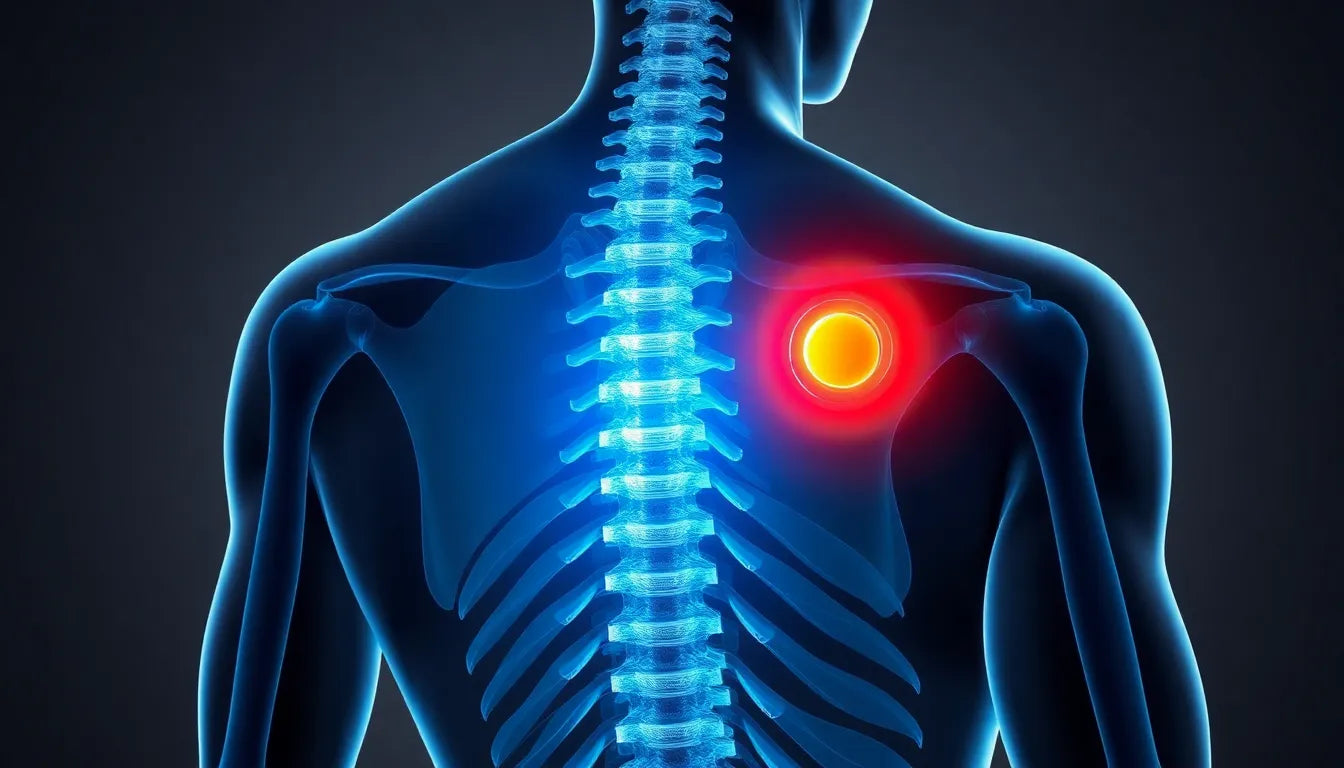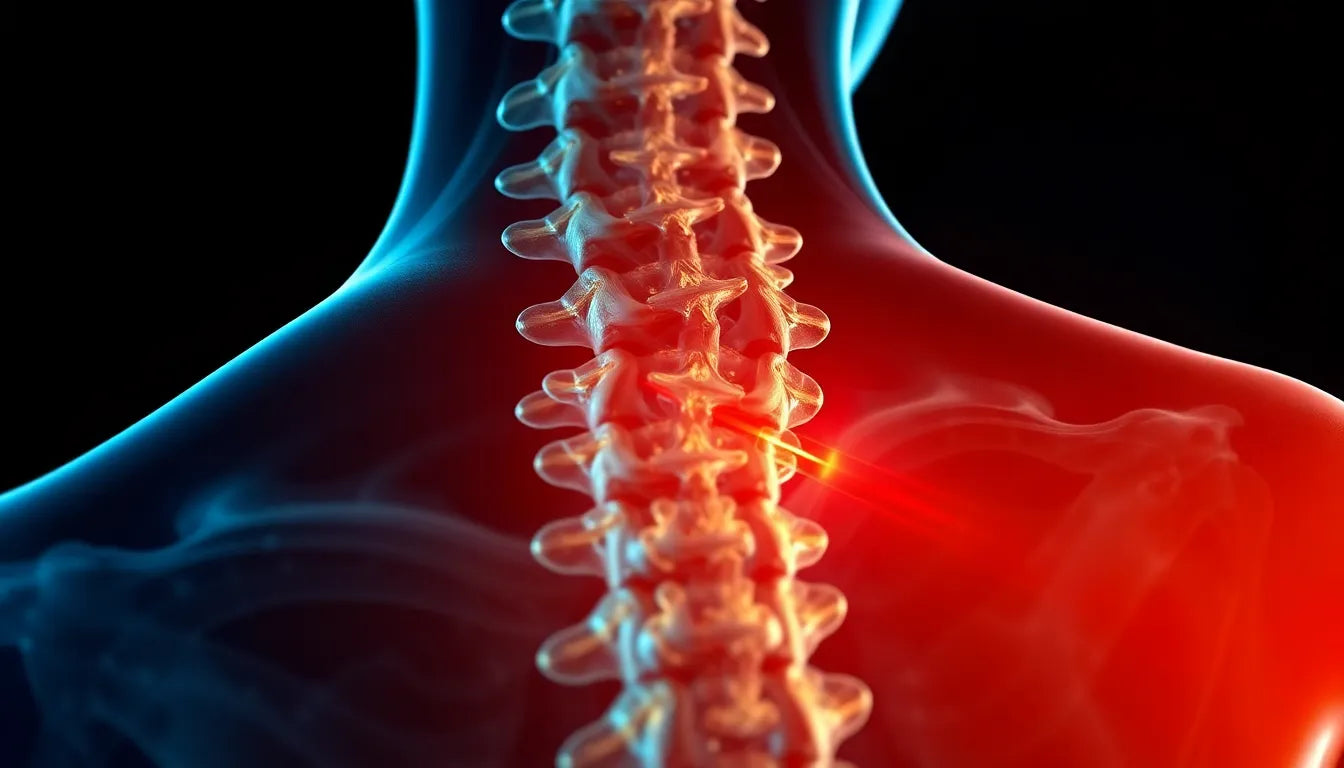Dealing with a herniated disc can be a daunting experience, especially when it comes to managing the pain that often accompanies this condition. A herniated disc occurs when the soft center of a spinal disc pushes through a crack in the tougher exterior casing. This can lead to nerve compression, resulting in pain, numbness, or weakness in an arm or leg. The discomfort can significantly impact daily activities, making it crucial to find effective ways to manage the symptoms.
Painkillers are often the first line of defense in managing the discomfort associated with a herniated disc. It's important to understand, however, that while these medications can provide relief from symptoms, they do not address the root cause of the condition. As such, painkillers should be viewed as part of a broader pain management strategy rather than a cure.
making informed decisions about pain management
When considering painkillers for a herniated disc, it's essential to be well-informed about the various options available. Understanding the differences between medications, their benefits, and potential side effects can help you make a more informed decision about your treatment plan. It's crucial to consult with a healthcare professional before starting any medication, as self-medication can lead to unintended consequences and may not adequately address your specific needs.
There are several types of painkillers commonly used to manage herniated disc pain, each with its own set of advantages and considerations. Nonsteroidal anti-inflammatory drugs (NSAIDs), for instance, are often recommended for their ability to reduce inflammation and alleviate pain. Acetaminophen offers an alternative for those who cannot take NSAIDs, although it does not address inflammation. In more severe cases, muscle relaxants, opioids, or corticosteroids might be considered, but each comes with its own set of risks and should be used under strict medical supervision.
Ultimately, the goal is to find a pain management strategy that provides relief while minimizing potential side effects. This requires a careful balance and a willingness to explore different options, including non-drug therapies that may complement medication. By taking a holistic approach to managing herniated disc pain, individuals can improve their quality of life and maintain greater control over their symptoms.
understanding painkiller options for herniated disc
When it comes to managing the pain associated with a herniated disc, understanding the variety of painkiller options available is crucial. Each type of medication offers distinct benefits and potential drawbacks, making it essential to consider your specific needs and medical advice before deciding on a treatment plan.
nsaids: the first line of defense
Nonsteroidal anti-inflammatory drugs (NSAIDs) like ibuprofen (Advil, Motrin), naproxen (Aleve), and aspirin (Bayer) are often recommended as the first choice for managing herniated disc pain. These medications work by reducing inflammation, which in turn helps alleviate pain. However, it's important to note that while effective, NSAIDs are not suitable for everyone, especially those with certain health conditions or those who require long-term use. Potential side effects include gastrointestinal issues and cardiovascular risks, making it essential to use them under medical supervision.
acetaminophen: an alternative for nsaid-sensitive individuals
For individuals who cannot tolerate NSAIDs, acetaminophen presents a viable alternative. While it effectively reduces pain, it does not address inflammation, which can be a limitation in cases where inflammation is a significant contributor to discomfort. It's crucial to adhere to recommended dosages to avoid potential liver damage.
muscle relaxants: addressing muscle spasms
Muscle relaxants such as carisoprodol and cyclobenzaprine are sometimes prescribed to manage muscle spasms that accompany herniated disc pain. However, recent studies have raised questions about their efficacy for low back pain, suggesting that their benefits may be limited. These medications can cause drowsiness and dizziness, so they should be used with caution and only under a doctor's guidance.
opioids: reserved for severe pain
In cases where pain is severe and unresponsive to other medications, opioids may be considered. These powerful painkillers are reserved for short-term use due to their high risk of addiction and other serious side effects. It's critical to use opioids only as prescribed by a healthcare professional and to explore alternative pain management strategies whenever possible.
corticosteroids: for significant inflammation
Corticosteroids, available in oral or injected forms, are utilized for cases involving severe inflammation and nerve involvement. While they can provide significant relief, they come with potential side effects, including immune suppression and weight gain. As with other medications, corticosteroids should be used under strict medical supervision.
nerve pain medications and antidepressants
For those experiencing prominent nerve pain, medications such as gabapentin, duloxetine, and pregabalin can be effective. Additionally, certain antidepressants may offer relief for chronic or neuropathic pain, providing an alternative approach for managing discomfort. These medications require careful consideration and should be discussed with a healthcare provider to determine their suitability.
comparing painkiller options
To aid in decision-making, it's beneficial to compare the effectiveness, risks, and recommended usage duration of each type of painkiller. NSAIDs are effective for short-term inflammation and pain relief but pose risks if used long-term. Acetaminophen is safer for long-term use but does not reduce inflammation. Muscle relaxants and opioids are typically reserved for short-term use due to potential side effects, while corticosteroids are used for specific severe cases. Nerve pain medications and antidepressants are often considered for long-term management of chronic pain.
Ultimately, the choice of painkiller should be tailored to individual needs, taking into account the severity of pain, medical history, and potential side effects. Consulting with a healthcare provider is essential to ensure a safe and effective pain management strategy for herniated disc pain. By understanding the options and their implications, individuals can make informed decisions that enhance their quality of life while managing their symptoms effectively.
holistic approaches to managing herniated disc pain
While painkillers play a significant role in managing herniated disc pain, integrating them with non-drug therapies can enhance overall outcomes and improve quality of life. Ergonomic aids, such as supportive chairs or seat cushions, can help reduce strain on the spine during daily activities. Additionally, lifestyle modifications, including maintaining a healthy weight and practicing good posture, are essential in reducing pain and preventing further injury.
Physical therapy is another cornerstone of holistic pain management. A tailored exercise program can strengthen the muscles supporting the spine, improve flexibility, and reduce pressure on the affected disc. Engaging in regular physical activity, under the guidance of a physical therapist, can also aid in pain reduction and enhance mobility.
Stress management techniques, such as mindfulness meditation and yoga, can complement physical therapies by addressing the emotional and psychological aspects of chronic pain. These practices help in reducing tension and promoting relaxation, which can indirectly alleviate pain.
key takeaways
It's crucial to remember that painkillers are primarily for symptom management and not a cure for herniated disc pain. Therefore, they should be used as part of a comprehensive pain management strategy that includes medical guidance and regular evaluation. By combining medication with lifestyle modifications and therapeutic exercises, individuals can achieve better pain control and improve their overall well-being.
Frequently Asked Questions
What is the best painkiller for a herniated disc?
NSAIDs, such as ibuprofen and naproxen, are often recommended as the first-line treatment for managing herniated disc pain due to their effectiveness in reducing inflammation and pain. However, the best painkiller for you depends on your specific health needs and should be determined in consultation with a healthcare professional.
Can I use painkillers long-term for herniated disc pain?
Long-term use of painkillers, particularly NSAIDs and opioids, can pose significant health risks, including gastrointestinal issues and addiction. It's essential to use these medications under medical supervision and explore alternative long-term management strategies.
Are there non-drug options for managing herniated disc pain?
Yes, there are several non-drug options available, including physical therapy, ergonomic adjustments, lifestyle changes, and stress management techniques. These approaches can complement medication and provide holistic pain relief.
What should I do if my pain persists despite medication?
If your pain continues despite medication, it's important to consult with a healthcare provider. They may recommend adjusting your treatment plan or exploring additional therapies, such as injections or surgical interventions, if necessary.
How do I know if I need stronger medication?
Signs that you may need stronger medication include persistent or worsening pain that interferes with daily activities despite current treatment. A healthcare provider can assess your condition and determine whether more potent medications or alternative treatments are appropriate.
Sources
- Medical News Today. (n.d.). "Pain medications for herniated disk: Options to consider."
- WebMD. (n.d.). "Herniated Disk Treatment, Remedies, and Medications."
- Axion Spine & Neurosurgery. (n.d.). "Best Painkillers for a Herniated Disc."
- The Spine and Rehab Group. (n.d.). "What Are Your Options for Herniated Disc Pain Relief?"
- Performance Pain. (n.d.). "Best Painkiller for Herniated Disc."
- ProHealth Prolotherapy Clinic. (n.d.). "Best Painkiller for Herniated Disc."
























